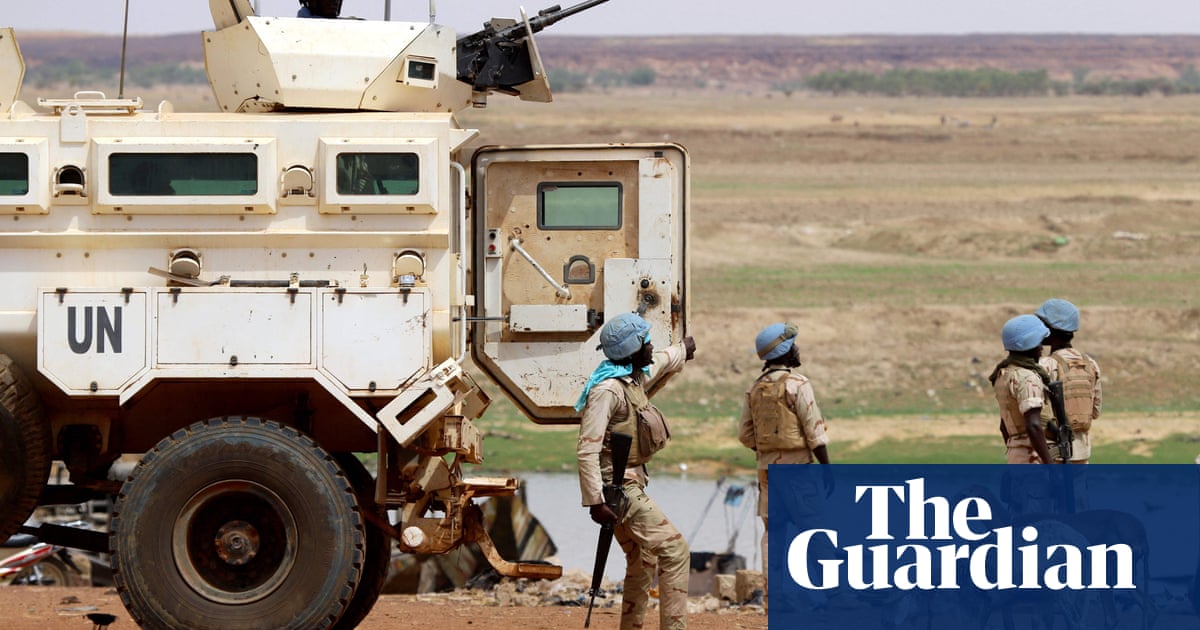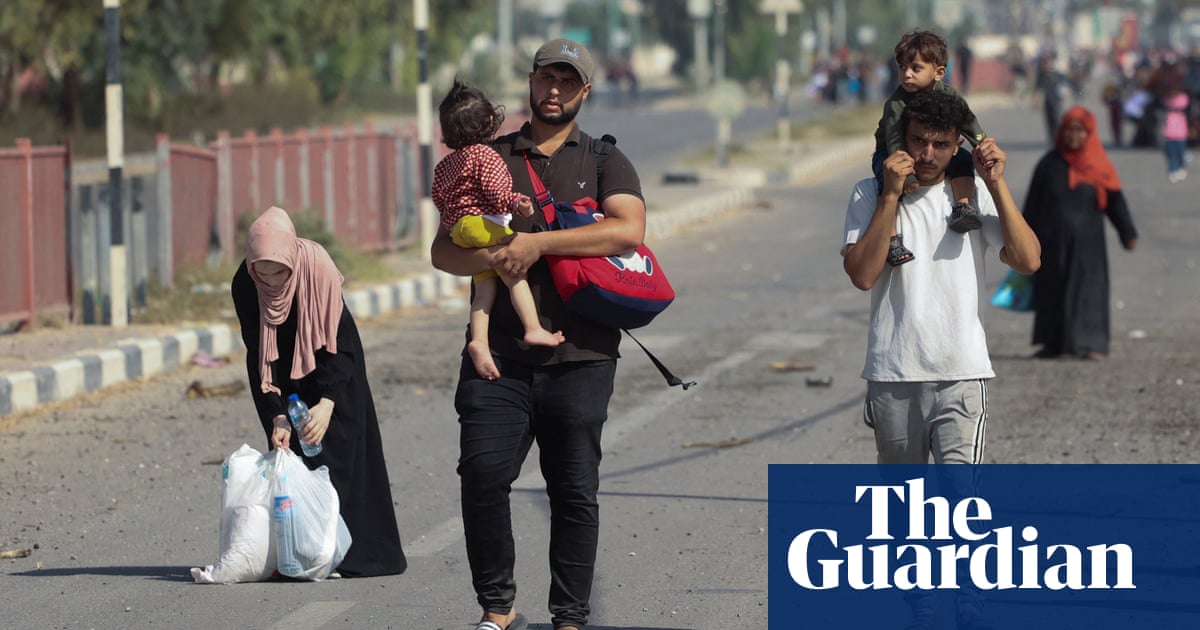
There was no warning. The raiders came late in the night, shouting and shooting. The unarmed farmers of Bujo had no chance to defend themselves, and those who were too slow to flee died. By the morning, the villagers’ homes had been burned, livestock stolen and stores looted. They buried 17 victims in the communal graveyard and then walked the 15km to the nearby town of Bandiagara, where they remain.
The attack in mid-August was one of more than a dozen assaults last month on similar villages in a small area of central Mali that have killed at least 100 people and displaced tens of thousands.
“We are really completely lost. We need food, shelter, everything. We want to go home to our village but there is no one to keep us safe there,” said Wilas Bujo, a 59-year-old farmer who fled with 13 members of his family to Bandiagara.
Last week, the threat to civilians in Mali was underlined by an attack on a passenger boat on the Niger River by al-Qaida affiliated militants from the Jama’at Nusrat al-Islam wal-Muslimin (JNIM) group. About 50 people died after three rockets were fired into the vessel in northern Mali. A government military base was attacked at the same time and 15 soldiers were killed.
Mali is one of the countries worst-hit by extremism in the central Sahel, which is the the global centre of terrorism, according to recent figures compiled by the Institute for Economics and Peace, a global thinktank.
Although in 2022, terrorism deaths around the world decreased by 9% to 6,701, after remaining steady for four years, the toll rose in Mali rose to 944, a 56% increase . Most of the victims were civilians.
Analysts have said a series of complex and intractable social, economic, environmental and political crises underly the surging violence. One cause is the coup d’etat in 2021 in which a military regime ousted a democratically elected leader. Mali’s new regime then forced out a substantial and unpopular French force and hired the Kremlin-linked Wagner group, which deployed about 1000 mercenary fighters.
In June, Mali’s new rulers demanded the withdrawal of Minusma, a 13,000-strong UN peacekeeping force set up more than a decade ago. The attacks on Bujo and other villages around Bandiagara in August began only days after the UN force based nearby ended its decade-long deployment.
Similar attacks have been seen in northern Mali, too, following the UN pullout there. The city of Timbuktu has been blockaded by emboldened militants and there have been clashes in the town of Ber. A 2015 peace deal that ended a rebellion by some Tuareg communities is under threat, analysts said.
“The peace deal is hanging by a thread. With the absence of UN peacekeepers or a state presence, the collapse of the peace deal may provide safe havens for militant groups to expand their control across northern and central Mali,” said Mucahid Durmaz, senior analyst at the risk intelligence company Verisk Maplecroft. “An uptick in violence could potentially cause a new wave of refugees who face high levels of insecurity.”
There has been no claim of responsibility for the attacks around Bandiagara. Witnesses said their assailants shouted “Allahu Akbar”, which suggests at least some were Islamic militants, and the tactics resemble those used by such extremists elsewhere in Mali. The villagers did not recognise any of the languages spoken by the attackers, and believe they came from some distance away.
One reason for the increase in violence may be the bitter rivalry between two major Islamist extremist organisations – the al-Qaida linked JNIM and Islamic State in the Greater Sahara (ISGS) – which are both trying to extend their territorial control and demonstrate their ability to impose their authority by force.
Control over communities is essential to extremist groups seeking recruits and funds. According to a UN expert report released last month, JNIM collects money and other resources “from almost all communities in the north of Mali and elsewhere”, arguing that it needs to defend them against Islamic State.
“In order to gather support for resource mobilisation and seek voluntary contributions, JNIM has shifted its narrative from [fulfilling a religious duty] to [demanding] contributions to support the war effort against Islamic State in the Greater Sahara and protect populations. According to the information received, contributions depend on each community’s capacity, size and economic weight,” the report said.
Islamic extremists also levy taxes on livestock, truck traffic as well as Mali’s extensive artisanal gold mining industry. Some have profited too from trafficking of fuel, narcotics, cigarettes and other contraband across the Sahara. Ransom payments are another source of revenue. Though western hostages have attracted the most media attention, hundreds of Malians have also been abducted.
Villagers in Mali frequently find themselves caught between armed insurgent groups and government security forces. Successive offensives have implicated the Malian army and Wagner mercenaries in a series of bloody massacres, extra-judicial executions, torture and indiscriminate detentions.
“We don’t want to be accused of being collaborators by the armed groups or by the army or the Russians,” said one village elder who was contacted by the Guardian in Bandiagara.
Local observers said that some of the villages around Bandiagara that have suffered recent attacks had concluded informal agreements with roaming extremist groups that should have kept them safe. These were ignored by the extremists after village elders refused either to pass on local intelligence about the movements of government troops or to supply dozens of young men to serve as fighters.
“When the jihadists turn up and find that all the sons have gone, then they think the leaders are playing a trick and punish them,” another elder said.
Analysts pointed to political unrest, poor governance, unemployment, official corruption and lack of reliable information among the many factors aggravating insecurity and extremism in the Sahel. Environmental crises caused by climate change have also played a part, exacerbating conflict over scant resources.
In Bandiagara, local people have mobilised to help those who have been displaced. But the money, food, bedding and other resources that they can share is inadequate. The town was short of water even before its population was trebled by the influx.
Daniel Kené, who fled the village of Jomollo Kanda, 12km away, said many displaced villagers were staying with relatives or were sleeping in tents, schools or in the open despite lashing rain.
“We really need some help to get back home. We are farmers not townspeople, and it’s a time when we need to be in our fields if we are going to have a harvest in a few months,” Kené said.
“Every time we think things are going to get better, something else happens … We are beginning to lose hope.”












